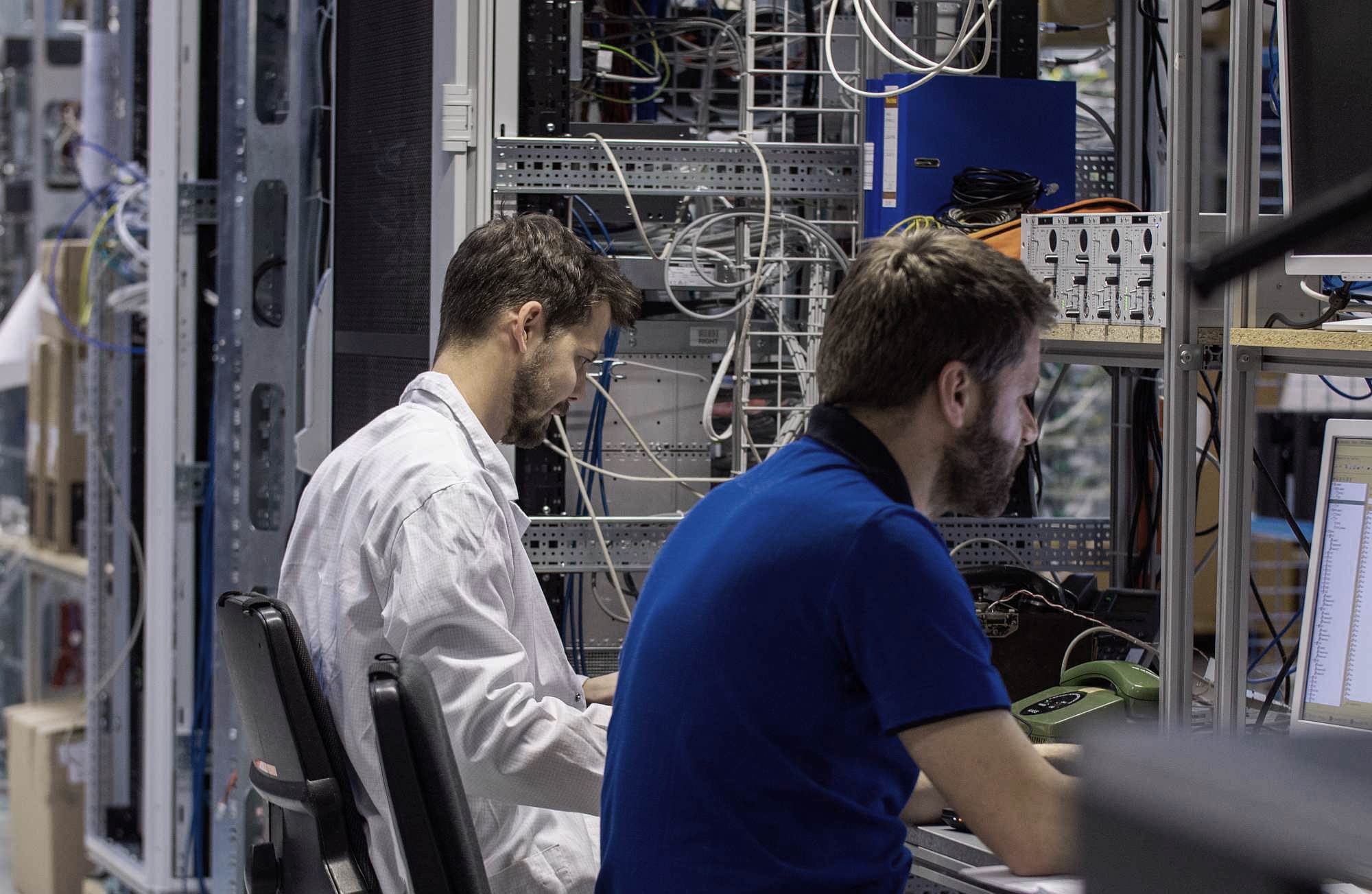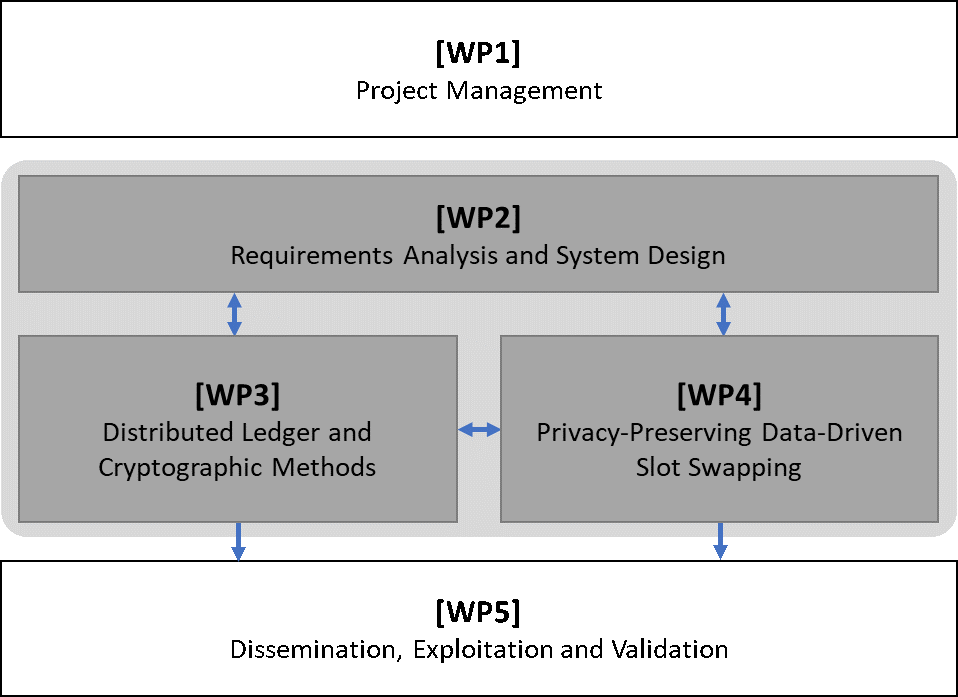Further Information & Contact
Should you have any further questions or inquiries, please contact:

In the years ahead, the aviation industry will need to balance the competing demands of rising passenger numbers and increased flight volumes on the one hand, and limited resources at airports and in the air on the other. At the same time, airlines will continue to face growing cost pressure from an increasing number of market participants. Meanwhile, meeting the highest safety standards will continue to demand compliance with complex processes.
One promising area of optimisation is the allocation of air traffic flow management (ATFM) slots. ATFM slots are issued by the EUROCONTROL Network Manager in times of increased flight traffic, regulating time of departure, exact execution of the flight route, and time of landing. Until now, ATFM slots have only been subject to intra-airline swaps, used by airlines to prioritise expensive flights and thus minimise overall costs. Reasons for different costs for individual flights include the provisioning of connecting flights for passengers and work-time restrictions for crew members. Airlines want to keep the cost structure of their flights confidential, for fear of competitive disadvantage if disclosed. This desire for confidentiality has hampered slot swapping between different airlines.
User-driven Prioritisation and Slot Management are the main project objectives of SlotMachine. In times of growing air traffic and limited capacity, it is crucial to improve the utilisation of available resources of stakeholders (airports, airlines and air navigation service providers) and to mitigate the economic impact of disruptions. When airports operate at the limit of their capacity, even a small disruption such as bad weather may cause delays to many flights. Delays create additional costs for airlines, such as compensation for passengers or the costs associated with a crew change. To minimise the overall costs caused by delays, airlines want to be able to give priority to some flights and to move back other flights. Overall cost savings are possible because the amount of cost caused by a delay depends heavily on the specific flight and on the severity of the delay. To maximize cost savings, airlines need to be able to prioritise delayed flights across airline boundaries and would like to do so without the need for time-intensive negotiations. This is inherently difficult because airlines as competitors are very careful not to disclose any business secrets such as the flight-specific estimated costs associated with delays of different severity.
Observation 1:
Due to increased air traffic it is necessary to improve the utilisation of available resources. To maintain safety, the ATM Network Management function regulates the allocation of ATFM slots by means of a First Planned First Served policy, generating delays that bear no relation to the impact of delays on airlines’ operations and costs. Today, slot swapping gives airlines the possibility of re-prioritising flights based on their actual cost structure. More advanced prioritisation mechanisms are under development (UDPP – User-Driven Prioritisation Process) that will enable the optimal apportionment of delays across flights of the same airline, based on each airline’s internal costs. It is expected that more optimal solutions could be found across airlines. Airlines, however, do not want to share sensitive cost information about flights and there are currently only very basic tools available for exchanging slots between airlines.
Digital Marketplaces. The economic field concerned with designing efficient market mechanisms is mechanism design and its goal is to achieve the optimal overall outcome for a specific resource allocation problem. Numerous airport and ATFM slot swapping mechanisms have been proposed to more efficiently organise air traffic flows [4]. Yet, none of these market mechanisms has seen widespread adoption in practice, presumably due to a lack of practical implementation as well as concerns about business secrets being disclosed by swapping ATFM slots between airlines.
Observation 2:
Digital marketplaces may employ a variety of market mechanisms, the general goal of which is the optimal allocation of scarce resources, e.g., ATFM slots. Exchanges and auctions are among the most relevant type of market mechanisms for an ATFM slot management platform.
Market Mechanisms and Privacy. Data encryption and access rights management are the prevailing mechanisms provided by modern database management systems to ensure data confidentiality, i.e. that no unauthorised access to private data occurs. Mechanism design has since embraced the notion of privacy as an incentive for market participants to “honestly report information”, which is often a requirement to finding globally optimal solutions to allocation problems. Market mechanisms offering privacy are also potentially resistant to collusion.
Observation 3:
To achieve optimal resource allocation for the market, participants must honestly report information about the internal operational cost of delay (based on passenger connections, curfew, and other constraints) or other metrics used for finding the optimal slot reconfiguration. Ensuring privacy is an incentive for market participants to honestly report information.
Blockchain and cryptographic methods for swapping. Blockchain and Multi-Party Computation (MPC) are two emerging technologies that are relevant for the design of trustworthy and privacy preserving slot swapping systems. They can be used to enable blind auctions without the need for a trusted party in a decentralised setting where individual bids are completely hidden. Besides privacy, MPC also achieves accuracy for the best bidder determination further increasing trustworthiness, and since any potentially harmful behaviour by an auctioneer is excluded by design, the system is less attractive to attackers. Blockchain technology includes many interesting concepts that can significantly increase the transparency and thereby the trustworthiness of trading platforms. However, blockchain does not protect the privacy of data handled, therefore it must be combined with additional cryptographic protections for data confidentiality to enable blind auctions.
Observation 4:
In summary, Multi-Party Computation (MPC) as a technology is an ideal candidate for providing privacy-preserving slot auctions with high security. However, existing protocols and implementations for MPC do not meet the efficiency, scalability, and transparency requirements. Nevertheless, through adaption, optimisation and tailoring of MPC and its combination with blockchain we expect to solve the major shortcomings of the application of the technology in SlotMachine and further improve the trustworthiness of the solution.

Find out more about our Air Traffic Management portfolio and highlights HERE.
Should you have any further questions or inquiries, please contact: